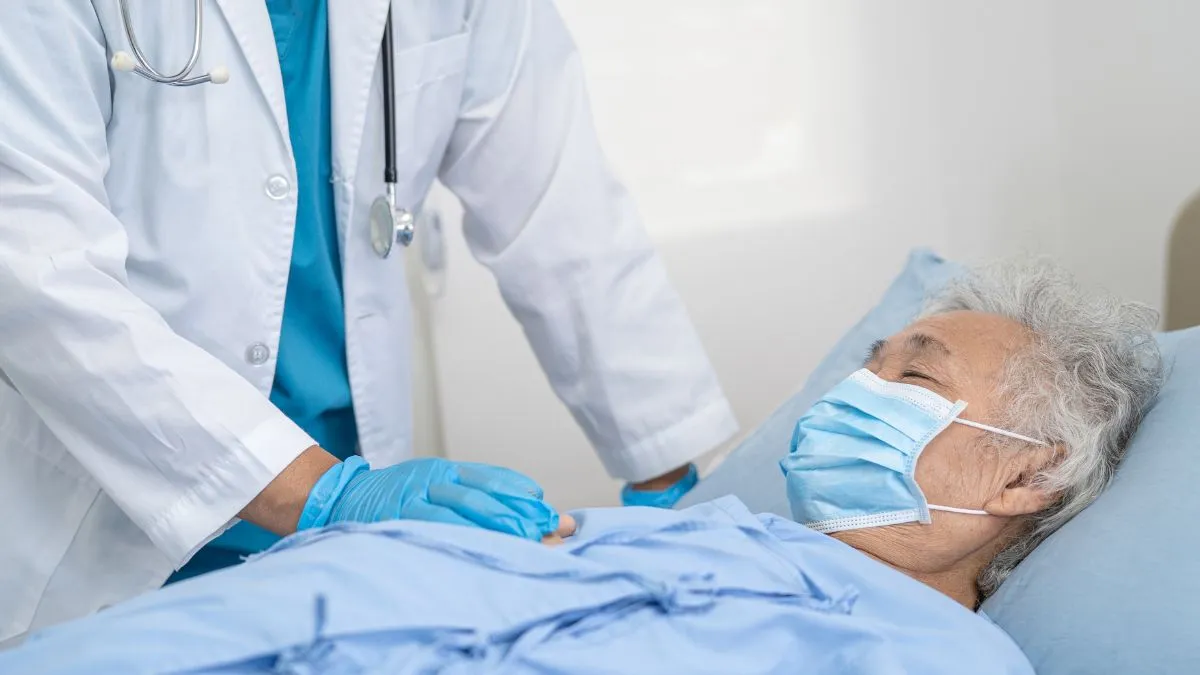- By Priyanka Munshi
- Tue, 30 Apr 2024 06:05 PM (IST)
- Source:JND
It's important to be mindful of the elevated risk of pneumonia throughout the summer, even though it's often associated with warmth and enjoyable outdoor activities. In warmer months, the risk of contracting pneumonia is higher due to factors such as indoor air conditioning and increased exposure to bacteria and viruses. Furthermore, changes in the summertime climate can impair immunity, increasing the risk of respiratory illnesses.
Maintaining proper hygiene—such as frequent handwashing—and avoiding crowded areas during peak hours can help lower the risk of pneumonia. Monitoring these factors can ensure that everyone has a safe and enjoyable summer. In a conversation with Jagran English, Dr. Sachin D, a consultant in interventional pulmonology, critical care, and sleep medicine at Fortis Hospital in Bengaluru, discussed the surge in pneumonia cases during the summer, affecting all age groups.
According to Dr. Sachin, on average, 4–5 patients are diagnosed with pneumonia every day, a higher number compared to last year during the same season. The combination of a hot summer at its peak and occasional rain showers in certain areas creates favorable conditions for viral infections to spread. Among the common viruses, influenza, parainfluenza, adeno, and rhinoviruses are predominant, with occasional cases of COVID-19 also observed.
Secondary bacterial pneumonias are also common, with mycoplasma, streptococcus, and Klebsiella being frequently encountered. Early initiation of treatment is crucial in such cases to prevent complications such as respiratory failure, decreased oxygen levels, and infection spreading to other parts of the body.
Also Read: 7 Fun Activity Ideas For Kids To Engage In During Summer Vacations
What Are The Early Symptoms Of Pneumonia?
Early symptoms include fever, sore throat, cough, runny nose, sneezing, and fatigue. Later, symptoms may progress to a persistent cough with mucus production and breathing difficulties. Elderly individuals may experience confusion and drowsiness due to poor food intake. Without prompt treatment, pneumonia can lead to respiratory failure, low blood pressure, renal failure requiring ventilatory support, and even dialysis.

The peak summer heat and occasional rain showers in certain regions create favorable conditions for the spread of viral infections.(Image Credit:Canva)
What Are The Diagnosis And Treatment Of Pneumonia To Prevent Complications?
Vaccination is recommended to protect vulnerable individuals, such as the elderly, children, those with lung, kidney, or heart disease, diabetics, and individuals with cancer. Influenza, COVID-19, and pneumonia vaccinations should be considered for vulnerable individuals after consulting with a pulmonologist.
Also Read: Top 10 Quotes By Punjabi Music Rockstar Diljit Dosanjh About Love And Life
Lastly, Dr. Sachin advised staying indoors during flu seasons, avoiding crowded areas, using masks in public places, practicing hand hygiene, promptly treating underlying medical conditions and diabetes, and seeking medical attention promptly if symptoms occur.

